Partners
Qingdao Technological University, China
Hokkaido University, Japan
University of British Columbia, Canada
University of Washington, USA
Michigan State University, USA
ScanWater AS, Norway
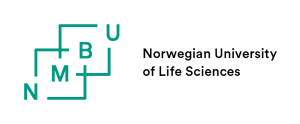 The Norwegian University of Life Sciences (Norway)
The Norwegian University of Life Sciences (Norway)
The Norwegian University of Life Sciences (NMBU) was established in 1859 as an agricultural school and as a scientific university college since 1897. NMBU is comprised of 8 departments and works closely with 5 centers on campus. NMBUs main specialization areas are biology, environment, food, land use and natural resource management. Of the 1160 University staff, more than half hold scientific positions. 4420 bachelor and master students and 447 PhD students.
NMBU is the leading university in Norway, having produced 50-65% of all master level graduates in water & wastewater engineering nationwide over the past 10 years. At present, one bachelor course (THT271) and two master level courses (THT310 and THT 311) address the membrane processes. Master research thesis work on membrane processes (5 months) have been carried out over the past five years. As of last year, the focus on membrane processes significantly strengthened through additions to the research group. Two Postdocs and one PhD fellow, all in membrane processes. Removal of arsenic and other heavy metals from polluted drinking water, enhancement of the separation process in biological wastewater processes, reduction of fouling potential etc. are the focal points in ongoing research projects.
Read more about the Norwegian University of Life Sciences: www.nmbu.no
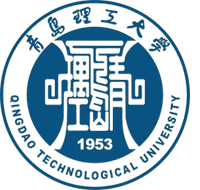 Qingdao Technological University – QTU (China)
Qingdao Technological University – QTU (China)
Qingdao Technological University (QTU) has been recognized as one of the top independent colleges in China with its more than 47 degree and diploma programs. Since 2000 the University has undertaken 17 projects of teaching reform at provincial level, won a second prize for National Teaching Achievement and 32 prizes for Provincial Teaching Achievement, and has published 147 textbooks. QTU’s research group focuses on Membrane Bioreactor Technology for treatment of grey water and black water, and Membrane Filtration Technology for tertiary treatment in UF-RO systems. QTU has collaborated with NMBU since 2013, taking part in two international projects – Water Magic Project and the EU – ERASMUS+ project “Water Harmony” with 10 universities from Norway, Poland, Germany, Ukraine, China and Sri Lanka. The collaboration between QTU and NMBU started in 2011 followed by a Guest Professor assignment to Prof Ratnaweera. The collaboration led to a High End Expert grant to Prof Ratnaweera since 2013. Prof Bi is also a member of the scientific committee in the EWA-WMCC conference.
QTU offers two master-level courses that address membrane processes for wastewater treatment – Reclaimed water treatment and water reuse (144 hours) and Nitrogen and phosphorous removal from wastewater (100 hours). Research projects relate with municipal & industrial wastewater treatment and reuse, focusing on Membrane Bioreactor Technology and Membrane Filtration Technology. Membrane fouling characterization and control is a research focus. Effects of bio-carriers on membrane fouling mitigation in Moving Bed Membrane Bioreactors and research on enzymes to improve biological processes in cold climates are other research focus areas.
Read more about the Qingdao Technological University: www.qtech.edu.cn
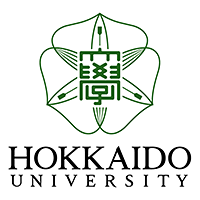 Hokkaido University – HU (Japan)
Hokkaido University – HU (Japan)
Hokkaido University (HU) is Japan’s leading university in the field of environmental engineering, having produced several leading professors including the former president of the International Water Association (IWA), Prof. Norihito Tambo. HU has encouraged the public sector and related industries in Japan to apply membrane technology, while contributing to the development of the technology itself. HU Coordinator Dr Katsuki Kimura, has extensive research experience in the field of membrane technology and has established strong relationships with membrane manufacturing industries in Japan. He currently serves as the chairman of the Membrane Technology Specialist Group of Japan Society of Water Environment (JSWE). Furthermore, he is the chairman of the Particle Separation Specialist Group of IWA, in which he and the project manager (Prof Ratnaweera) have maintained a close partnership for a long time.
The Graduate School of Engineering, Hokkaido University offers an environmental engineering program (Master and PhD level) that includes 10 credits covering water and wastewater treatments. Membrane technology for water and wastewater treatment is addressed in the program. Particularly, Wastewater Reclamation and Reuse (34001) deals with various aspects of membrane technology. The research group Laboratory on Engineering for Sustainable Sanitation has extensive research experience on application of membrane technology to water and wastewater treatment. They possess pilot-scale apparatuses installed at existing water/wastewater treatment plants and have conducted research on membrane fouling mitigation, identification and characterization of foulants and energy saving for the operation of membrane bioreactor systems. The ongoing research activities focus on Membrane autopsy; Fouling analysis; NOM characterization; Optimization of pre-treatment for MF/UF. They have strong industrial collaborations with Asahi Kasei; Meidensya; Organo Cooperations.
Read more about the Graduate School of Engineering at Hokkaido University: www.eng.hokudai.ac.jp
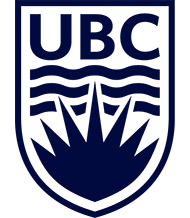 University of British Columbia – UBC (Canada)
University of British Columbia – UBC (Canada)
The University of British Columbia (UBC) has a strong research group working on membrane technology. The UBC Coordinator Prof. Pierre Bérubé is the Director of UBC/UNBC Environmental Engineering Program, with long standing relationships with the industry. He has over 20 years of research dealing with the development of membrane and biological technologies for water and wastewater treatment applications. Much of his recent research focuses on the development of passive/low-cost water treatment systems for small and/or remote communities in North America and abroad. His research group at UBC has advanced labs, a pilot scale membrane bioreactor, conventional treatment systems, and levels of collaboration with industries. UBC has collaborated with NMBU through the ongoing SIU-High North project “Water management in Cold Climates” (Water Magic Project). Prof. Bérubé is also a member of the scientific committee of the forthcoming EWA conference on Water Management in Cold Climates (EWA-WMCC), 24-27 June 2016 in Spitsbergen, where NMBU is the host, and Prof Ratnaweera is the conference chair.
UBC offers two course-based degrees, MEng and MEL, and two research-based degrees, MSc and PhD, in eight areas of specialization, at the graduate level. The graduate program in Environmental Engineering allows students to focus in Pollution Control and Waste Management, where three courses addressing membrane processes are offered: Membrane Technologies for Water and Wastewater Treatment (CIVL 598), Physical – Chemical Processes for Water and Wastewater Treatment (CIVL 565), Water Treatment and Waste Management (CIVL 406). The Filtration Technology Group, which is a part of the Pollution Control and Waste Management Group at the Department of Civil Engineering, develops state-of-the-art knowledge, tools and processes to advance the field of membrane processes, and provides opportunities for training future leaders in the field of membrane engineering and research. The present membrane processes related research focus on Hydrodynamic optimization of membrane systems; Fluid dynamics; Membrane autopsy; Membrane material weathering/ageing, Membrane cleaning, Hybrid UF Membrane Process (adsorption, biofiltration, oxidation); Passive membrane systems and Seawater UF/NF.
Read more about the research group at University of British Columbia: membrane.civil.ubc.ca
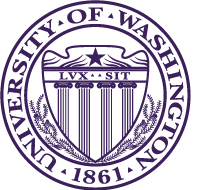 University of Washington – UW (USA)
University of Washington – UW (USA)
University of Washington (UW) is among the leading universities engaged in advanced research and innovation in the field of membrane technologies for water treatment. UW has carried out numerous funded projects related to membrane fouling, development of novel materials for membrane processes and related areas, and has an active master and doctoral program focused on advanced research in this field. UW will seek support from the UW Valle Program, which supports faculty and student exchanges between Scandinavian countries and the University of Washington, to enhance the project and its activities. If applications from students participating in MEMPREX project are approved, this program will provide funding for one or two graduate students from NMBU for years 2019-2020, with a full fellowship (or fellowships) with a value of about 50 000 USD per year. University of Washington will bring in its expertise on novel methods and materials to control fouling in membrane processes. UW is collaborating with NMBU in two research projects (1) Water Magic Project with Prof Korshin and (2) NOM removal with membrane processes enhanced with HAOP pre-treatment with Prof Benjamin. Prof Korshin is also a member of the scientific committee of the EWA-WMCC conference.
University of Washington, Department of Civil and Environmental Engineering (UW CEE) offers on-campus master’s degree programs in six specialty areas, and three online master’s degrees. The department also has two PhD programs in Environmental Engineering and Hydrology & Hydrodynamics. Both undergraduate and graduate level courses at UW CEE address membrane issues. Such classes include CEE357 Introduction to Environmental Engineering, CEE 483 Drinking Water Treatment, CEE544 Physical-Chemical Treatment Processes and CEE549 Advanced Topics in Environmental Engineering. One of the major directions of research at the CEE department is membrane treatment of wastewater and drinking water, with particular emphasis on approaches to characterize and prevent membrane fouling, combining conventional coagulation and membrane filtration processes. The research group is well known for developing a novel pre-coating procedure of membranes modified with Heated Aluminium Oxide Particles for NOM removal. This approach results in significant increases of the capacity of MF while reducing the fouling potential.
Read more about the Department of Civil and Environmental Engineering at University of Washington: www.ce.washington.edu
Read more about Korshin’s research group at University of Washington: faculty.washington.edu/korshin
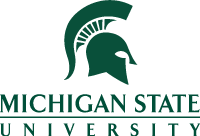 Michigan State University – MSU (USA)
Michigan State University – MSU (USA)
Michigan State University (MSU) is among the leading higher education institutions engaged in research, development and innovation in the fields of water science and membrane technologies. Michigan State University has been a participant of two large grants (total USD 7 million) in the area of water treatment and membrane separations funded by the U.S. National Science Foundation (NSF) Partnerships for International research and Education (PIRE) program. The PIRE grants involved collaborations with partners from Singapore, France, Ukraine, and Turkey. We also have MS and PhD programs in a number of disciplines relevant for the topic of the MEMPREX proposal. Michigan State University will bring its expertise on separation of oil-water emulsions using membrane technology for remediation of water resources contaminated by oil spills clean-up. This is the first formal research collaboration between the MSU and NMBU, although Prof Tarabara and Dr Maletskyi, NMBU, have discussed various research collaborations for some time.
The Department of Civil and Environmental Engineering, Michigan State University currently offers six advanced-degree programs including the MS and Ph.D. in both civil and environmental engineering as well as interdisciplinary MS degrees with urban studies. Graduate programs focus on the treatment technologies and processes that affect the fate, effects, and movement of contaminants in the environment and on understanding the theory and design of water and wastewater treatment processes and facilities. Membrane science and technology is addressed in two courses – Membrane Processes (ENE811) and Physicochemical Processes in Environmental Engineering (ENE802). Funded by U.S. NSF, U.S. EPA and WERF, most recent projects in this area are on the removal and inactivation of viruses, membrane separation of liquid-liquid emulsions and membrane fouling, including fundamental studies of related phenomena and development of materials-based and process-based solutions for fouling control.
Read more about the Department of Civil and Environmental Engineering at Michigan State University: www.egr.msu.edu/cee
Read more about the Tarabara Research Group at Michigan State University: www.egr.msu.edu/~tarabara/
 ScanWater AS (Norway)
ScanWater AS (Norway)
Scandinavian Water Technology AS (previously A-Aqua and Malthe Winje Drinking Water Systems) is a Norwegian supplier of membrane process based water treatment solutions, with focus on innovation. They develop and market solutions for emergency water supply systems for relief operations and temporary field installations, as well as module based comprehensive drinking water systems for removal of particles, microorganisms and heavy metals. The collaboration with NMBU in the field of membrane processes started in 2011, where several master and guest researcher projects were carried out on arsenic removal from drinking water. ScanWater will provide a full-scale RO based drinking water treatment plant to NMBU (value 84 000 USD) to serve as the pilot and full-scale research base. This unit and a smaller pilot unit from ScanWater will be used in educational activities.
Read more about ScanWater AS: www.scanwater.no

